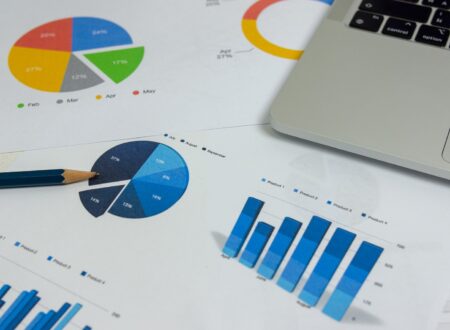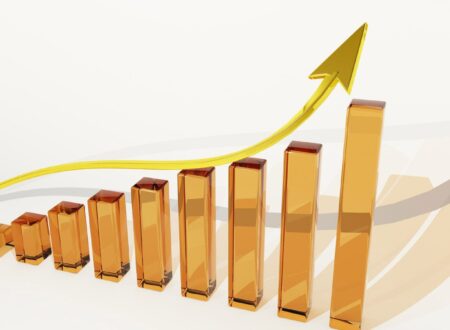Introduction to Credit and Interest Rates
Credit cards can feel like a double-edged sword. On one hand, they offer convenience and the ability to make purchases without cash on hand. On the other, they come with complexities that can catch even seasoned users off guard. Many people underestimate how interest rates and fees can impact their financial health over time.
As we dive into this topic, it’s essential to grasp not just the basics of credit but also what lurks beneath the surface—hidden costs that could lead to significant debt if left unchecked. Whether you’re a new cardholder or looking to manage your existing accounts better, understanding these concepts is crucial for making smart choices about credit usage. Let’s explore together!
Common Types of Credit Cards and Their Associated Fees
Credit cards come in various types, each designed to meet different financial needs. Understanding these can help you avoid unnecessary costs.
Standard credit cards typically have lower fees but may lack rewards. They are straightforward and easy to manage for everyday purchases.
Reward cards offer points or cash back on spending. While enticing, they often come with higher annual fees. It’s essential to calculate if the rewards outweigh those extra charges.
Balance transfer cards allow you to move debt from one card to another, usually at a low introductory rate. However, watch out for balance transfer fees that can add up quickly.
Secured credit cards require a deposit as collateral and are ideal for rebuilding credit. The downside? They often involve monthly maintenance fees that can diminish your savings.
Understanding these nuances empowers consumers to choose wisely and minimize expenses associated with their credit usage.
Understanding APR and How it Affects Your Payments
APR, or Annual Percentage Rate, is a crucial factor in understanding how much borrowing will cost you. It represents the yearly interest charged on credit balances.
When you carry a balance on your credit card, the APR determines how quickly that amount grows. A higher APR means more interest added to your outstanding balance each month.
If you’re only making minimum payments, even small purchases can lead to significant debt over time. It’s essential to know whether your rate is fixed or variable; this can change what you owe depending on market conditions.
Pay attention to promotional rates as well—these often last for a limited period before reverting back to standard rates. Knowing all these details helps you make smarter financial choices and keep your expenses manageable.
The Importance of Checking Your Credit Score
Your credit score plays a crucial role in your financial health. It’s more than just a number; it reflects how lenders view you as a borrower.
Checking your credit score regularly can help you stay informed about your financial standing. Mistakes happen, and inaccuracies can drag down your score without warning. Catching these errors early gives you the chance to correct them before they impact loan applications or interest rates.
Moreover, understanding where you stand allows for better planning. If you’re aiming for a big purchase like a home or car, knowing your score helps tailor your approach.
Remember that many services offer free access to this information. Use these tools to track progress over time and identify trends in your spending habits.
Taking control of this aspect of personal finance empowers you. Your future borrowing decisions depend on it, so make checking your credit score a priority.
Tips for Avoiding High Interest Rates and Fees
To dodge high interest rates and fees, start by shopping around. Compare different credit cards before committing. Look for those with lower APRs and minimal fees.
Pay attention to the terms. Some cards lure you in with low introductory rates that skyrocket later. Knowing what you’re signing up for can save you money down the road.
Consider automatic payments or set reminders to avoid late fees. Missing a deadline can lead to increased charges and higher interest rates.
Regularly check your credit score, too. A good score often comes with better offers from lenders. If it’s lacking, take steps to improve it—like paying off debts promptly.
Use your card wisely; don’t max out your limit unless necessary. Keeping your utilization low not only helps maintain a healthy score but also prevents higher costs in the long run.
Hidden Costs of Credit Beyond Interest Rates
When considering credit, many focus solely on interest rates. However, hidden costs lurk beneath the surface. These can significantly impact your overall financial health.
Late payment fees are a common pitfall. Missing a due date not only incurs charges but can also harm your credit score.
Another often-overlooked cost is foreign transaction fees. If you travel or shop internationally, these charges can quickly pile up without warning.
Annual fees attached to certain cards may seem trivial at first glance, yet they chip away at your budget over time. Always read the fine print before signing up.
Cash advance fees are another area where consumers get caught off guard. With high percentages added on top of what you owe, borrowing against your limit becomes an expensive choice.
Understanding these hidden costs empowers you to make more informed decisions about using credit effectively and responsibly.
Conclusion: Making Informed Decisions About Credit Usage
Navigating the world of credit can feel overwhelming, especially with all the hidden costs lurking beneath the surface. Understanding interest rates and fees is crucial for making informed decisions.
It’s essential to take a proactive approach to your credit usage. Regularly checking your credit score helps you stay on top of factors that might influence your interest rates. Knowledge is power when it comes to negotiating better terms or selecting the right card.
Remember, avoiding high-interest debt starts with careful planning and research. Look out for promotional offers that could save you money in the long run and pay attention to any potential charges associated with your account.
The hidden costs of credit extend beyond just what meets the eye; they can affect your financial health significantly if left unchecked. By staying informed and vigilant about how you use credit, you’ll find yourself on a path toward smarter financial choices.
Making educated decisions about credit not only empowers you but also paves the way for a more secure financial future. Be mindful, get educated, and make every dollar count as you navigate through various options available at your disposal.




